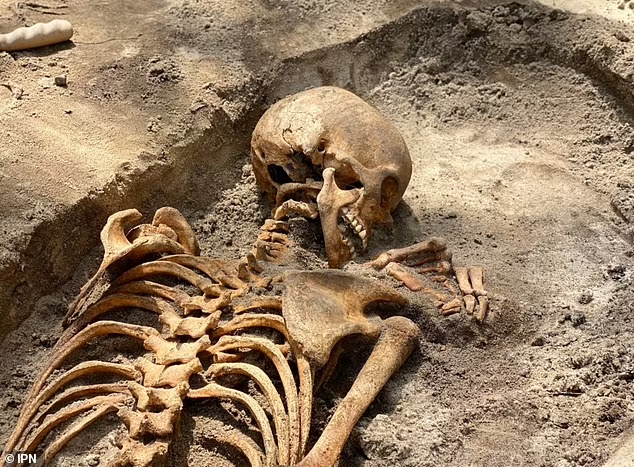In the heart of Warsaw, a dark chapter of Polish history is slowly being unearthed. The skeletal remains of three young Poles, believed to be around 19-20 years old, have been discovered in a mass grave, shedding light on the tragic fate of the ‘Cursed Soldiers’ – a group of resistance fighters who bravely opposed both the Nazi occupation and the subsequent Soviet takeover of their homeland.
These latest discoveries, made by investigators from Poland’s Institute of National Remembrance, are part of an ongoing effort to uncover the hidden horrors that took place at the notorious ‘Toledo’ prison, a former army barracks that served as one of the most brutal interrogation centers operated by the Communist regime. The grim task of exhuming the victims and piecing together their stories is a testament to the resilience of the Polish people and their determination to honor the sacrifices of their forefathers.
Unveiling the Tragic Legacy of the ‘Cursed Soldiers’
The skeletal remains of three young Poles, believed to be around 19-20 years old, have been unearthed in a mass grave in Warsaw, Poland. These victims were part of the ‘Cursed Soldiers’, a group of resistance fighters who bravely opposed both the Nazi occupation and the subsequent Soviet takeover of their homeland.
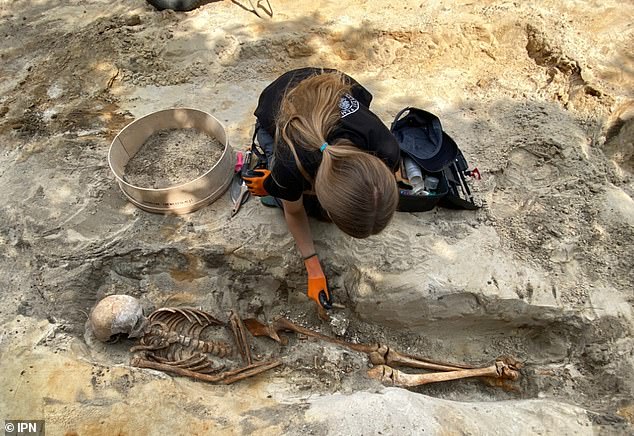
The gruesome discovery was made by investigators from Poland’s Institute of National Remembrance, who have been searching the grounds of a former prison operated by the Soviet Union’s dreaded NKVD and the Communist government’s Public Security Office. According to witnesses, this was a site where many ‘Cursed Soldiers’ were executed and hastily buried after being captured by the secret police.
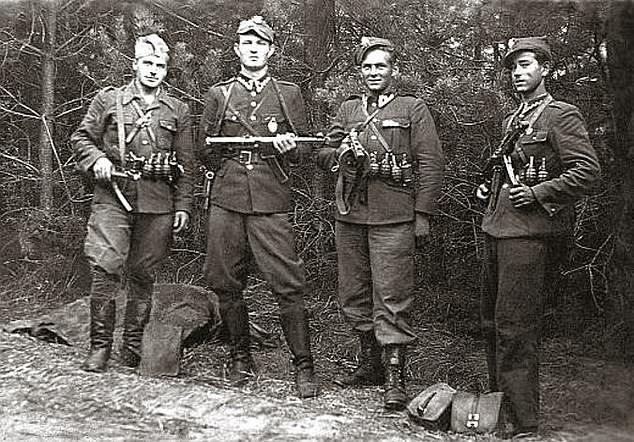
Professor Krzysztof Szwagrzyk, leading the research, stated, “The area we are in still hides many dramatic secrets, and we are here to clear them all up. We will do our best to have the whole area examined by the end of this year or the beginning of next year, and only then will we be able to say precisely that there are no more human remains.”
The Tragic Fate of the ‘Cursed Soldiers’
The ‘Cursed Soldiers’ were Polish resistance fighters who initially took up arms against the Nazi occupation of their country during World War II. However, as Hitler’s forces began to crumble, these brave individuals shifted their focus to the growing threat of Soviet domination.
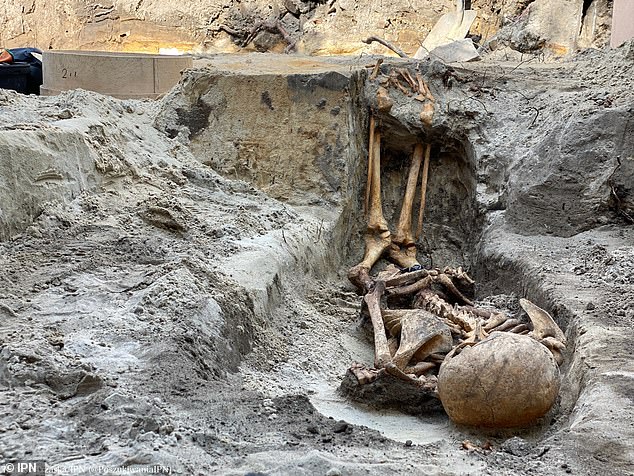
Hunted down by the ruthless NKVD and the Public Security Office, the ‘Cursed Soldiers’ were either executed on the spot, sent to former Nazi concentration and death camps, or imprisoned in various facilities across Poland. One of the last members to be released from captivity was Adam Boryczczka, a captain in the Polish underground Home Army and a member of the elite Cichociemny (Silent and Hidden) intelligence group, who was sentenced to death in 1954 for attempting to escape Soviet-controlled Poland.
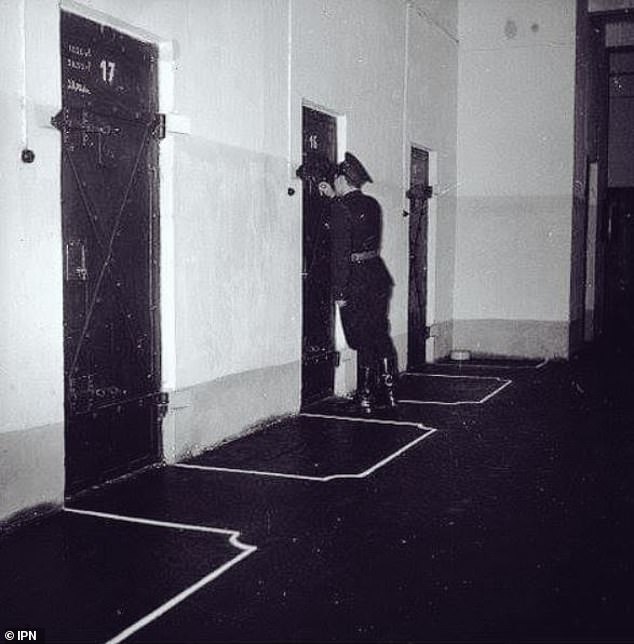
Uncovering the Forgotten Horrors of the ‘Toledo’ Prison
The prison where the latest discoveries were made, known as the ‘Toledo’ facility, was one of the most brutal interrogation centers operated by the Communist regime. Surrounded by watchtowers, barbed wire, and shards of glass, the former army barracks was infamous for its torture chambers and numerous executions carried out in a special death bunker. The bodies of the victims were then buried in the grounds, with trees planted to conceal the mass graves.
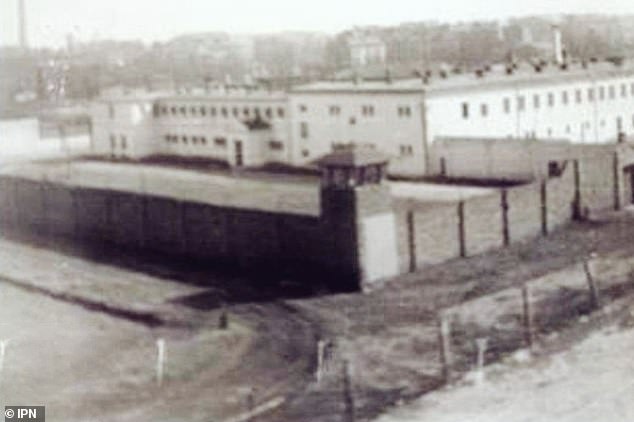
After the fall of communism in Poland, the convictions of the ‘Cursed Soldiers’ were finally declared invalid, and their sacrifices for the nation’s freedom were recognized. The ongoing excavations at the ‘Toledo’ site are uncovering the hidden tragedies that occurred during this dark chapter of Polish history, ensuring that the memory of these brave individuals is not forgotten.
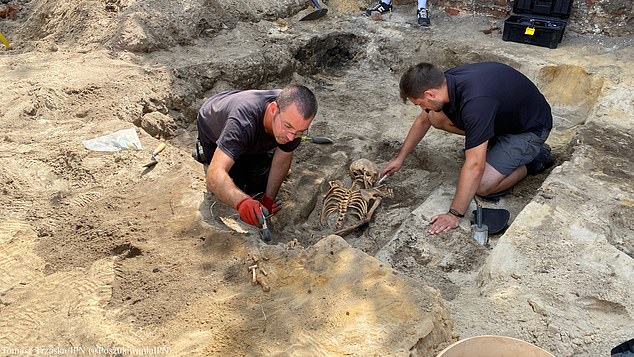
The discovery of the skeletal remains of the ‘Cursed Soldiers’ in Warsaw’s ‘Toledo’ prison serves as a poignant reminder of the sacrifices made by Poland’s resistance fighters in their struggle against both Nazi and Soviet tyranny. As the investigations continue, the Institute of National Remembrance is committed to uncovering the full extent of the horrors that took place within these walls, ensuring that the stories of these forgotten martyrs are finally brought to light.
